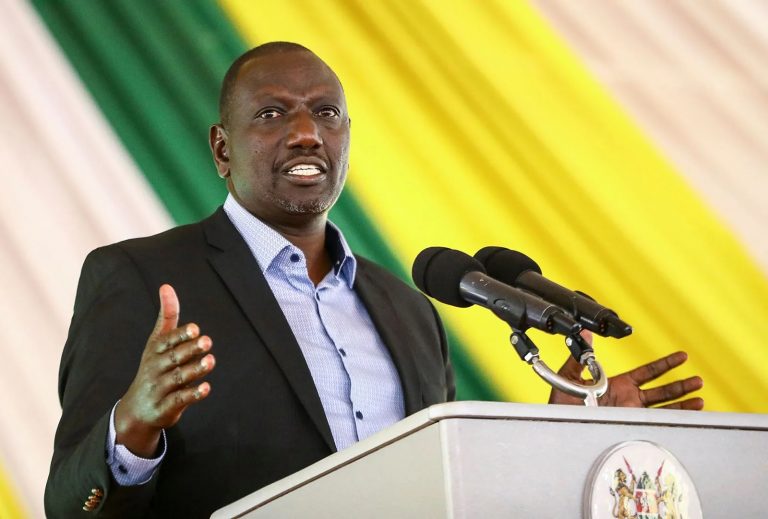
Kenyan President William Ruto has called on all African leaders to embrace pan-African payments to reduce reliance on the globally-bullish US dollar.
Speaking at a forum on the African Continental Free Trade Area (AfCFTA) on Monday, Ruto urged his peers in Africa to mobilize central and commercial banks to join Pan-African Payments and Settlement System (PAPSS) which was formed in January 2022.
He expressed concerns over the challenges faced by African countries and local banks, who often rely on correspondent banks in the US and Europe to complete payments between African currencies, resulting in delays and additional charges.
Register for Tekedia Mini-MBA edition 19 (Feb 9 – May 2, 2026): big discounts for early bird.
Tekedia AI in Business Masterclass opens registrations.
Join Tekedia Capital Syndicate and co-invest in great global startups.
Register for Tekedia AI Lab: From Technical Design to Deployment (next edition begins Jan 24 2026).
In his words,
“We are all’ struggling to make payments for goods and services from one country to another because of differences in currencies. And in the middle of all these, we are all subjected to a dollar environment. There has been a mechanism where all our traders can trade in the local currency and we leave it to the Afreximbank to settle all the payments. We do not have to look for dollars; our businessmen will concentrate on moving goods and services and leave the arduous task of currencies to Afreximbank.
“I suggest that we have a mechanism where we can settle all our payments whether between our countries or externally using our local currencies. And we have a mechanism like the one that has been put up by the Afreximbank so that we don’t have to be hostage to any one currency. Without a single payment platform, payment instructions from one African country to another typically pass through several intermediary financial institutions, leading to increased costs, complications, problems, and unnecessary currency fluctuations and it ends up being a whole ecosystem of confusion.”
A 2021 business day report revealed that African countries with 42 different currencies are losing $5 billion annually, which is why intra-African trade is constrained and the Small and Medium Enterprises (SMEs) are the most affected. The current reliance on US dollars has led to a mismatch between demand and supply, causing importers including oil marketers and manufacturers to face difficulties. The shortage of the dollar has also put pressure on the Kenyan shilling, which saw it depreciate by 12.1% since the beginning of the year.
This saw Ruto call for the adoption of PAPSS in the wake of challenges faced by Kenya, such as fuel shortages and economic problems attributed to a dollar shortage. Reports reveal that African traders and their local banks are using correspondent banks, usually in Europe to complete payments between two African currencies largely in dollars, and sometimes in euros. Payment usually takes up to three to five days to get to the recipient’s bank.
Importers such as oil marketers and manufacturers have since last year complained of a gaping mismatch in demand and supply of the US dollars, prompting them to buy it in batches and levels way above the official rate. The Kenya Association of Manufacturers, for example, last year said the dollar crunch strained relations with suppliers at a time competition for raw materials had intensified due to rising demand amid lingering supply chain constraints.
The unit has remained under sustained pressure from the US dollar due to higher demand than supply in a high-inflation environment that has seen investors shift their assets to a haven. Kenya suffered an acute shortage of fuel which the oil marketers largely linked to delays in releasing cash for fuel subsidies creating cash flow challenges, while the government accused the firms of hoarding the commodity.
As part of efforts towards addressing this challenge, AfCFTA is reportedly working with Afreximbank to establish a Pan-African Payment and Settlement System (PAPSS), which will enable Africans to transact in real-time on a digital platform with some entity in other parts of the continent using their local currency, so they will not have to worry about converting to a dollar, Euro, or any currency.
As more countries move away from the US dollar, there is a growing shift in the focus on international trade. Countries are increasingly looking to trade with each other using their currencies, rather than using the dollar as a medium of exchange. This shift has the potential to reshape the global economy, as it could reduce the dominance of the US and increase the influence of other countries.
One of the main benefits of using alternative currencies in international trade is that it can reduce the risks associated with exchange rate fluctuations. When countries trade using the dollar, they are exposed to the risk of fluctuations in the value of the dollar, which can impact the profitability of their trade. By using their currencies, countries can reduce this risk and ensure that they are not impacted by external factors beyond their control.



